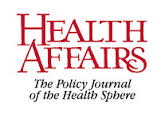Low-Income Patients Prefer Hospital ERs
Even when they have health insurance, many low-income patients prefer receiving care in hospital emergency rooms rather than private physician offices or clinics.
According to a new study published in the journal Health Affairs, low-income patients cite convenience, cost, and quality as reasons for their preference.
These findings emerge at a time when government and insurers are working hard to find ways to reduce overuse of costly hospital emergency room services.
Emergency room overuse is especially a problem for many of Pennsylvania’s safety-net hospitals, which often have among the busiest emergency facilities in the regions they serve.
Read more about the new study in this report from the Robert Wood Johnson Foundation and find the study itself here, on the Health Affairs web site.






